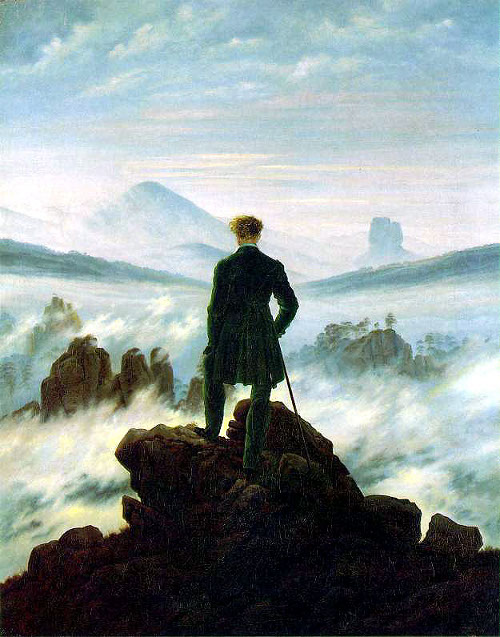https://myblog-inplainenglish.blogspot.com/2018/12/william-wordsworth-5c-linguistico.html
Showing posts with label William Wordsworth. Show all posts
Showing posts with label William Wordsworth. Show all posts
Saturday, 19 October 2024
Wednesday, 19 October 2022
WILLIAM WORDSWORTH - 5^C LINGUISTICO

Here you can find my previous post about William Wordsworth, a major English Romantic poet, well-known for his celebration of nature.
Wednesday, 17 November 2021
WILLIAM WORDSWORTH - 5^D LINGUISTICO
Here you can explore the Wordsworth Museum
which is next door to Dove Cottage
- it was in this little cottage,
at times "crammed edge full" with people, in the heart of the remote Lake
District, that William Wordsworth wrote some of the greatest poetry in the
English language.
Labels:
5^D Linguistico,
Poetry,
The Romantic Age,
William Wordsworth
Wednesday, 1 September 2021
SEPTEMBER
"Departing summer hath assumed
An aspect tenderly illumed,
The gentlest look of spring;
That calls from yonder leafy shade
Unfaded, yet prepared to fade,
A timely carolling."
William Wordsworth
Friday, 2 December 2016
ROMANTICISM IN LITERATURE AND ART

“In spite of difference of soil and climate, of language and manners, of laws and customs, in spite of things silently gone out of mind and things violently destroyed, the Poet binds together by passion and knowledge the vast empire of human society, as it is spread over the whole earth, and over all time. The objects of the Poet’s thoughts are everywhere; though the eyes and senses of man are, it is true, his favorite guides, yet he will follow wheresoever he can find an atmosphere of sensation in which to move his wings. Poetry is the first and last of all knowledge—it is as immortal as the heart of man.”
William Wordsworth, “Preface to Lyrical Ballads"
Discovering Literature: The Romantics
Introduction to Romanticism
Labels:
Art,
Literature,
Romanticism,
The Romantic Age,
William Wordsworth
Tuesday, 20 November 2012
WILLIAM WORDSWORTH ~ COMPOSED UPON WESTMINSTER BRIDGE
This sonnet conveys some of the emotions felt by William Wordsworth while crossing
Westminster Bridge on an early September morning 1802. It is an Italian sonnet, written in iambic
pentameter, the rhyme scheme of the poem is
abbaabbacdcdcd.
Sonnets were traditionally the way love poems were written, so it could be claimed that this is a love poem to the city of London in the morning.
Sonnets were traditionally the way love poems were written, so it could be claimed that this is a love poem to the city of London in the morning.
Earth
has not anything to show more fair:
Dull would he be of soul who could
pass by
A sight so touching in its
majesty:
This City now doth, like a
garment, wear
Ships, towers, domes, theatres,
and temples lie
Open unto the fields, and to the
sky;
All bright and glittering in the
smokeless air.
Never did sun more beautifully steep
In his first splendour, valley,
rock, or hill;
Ne'er saw I, never felt, a calm so
deep!
The
river glideth at his own sweet will:
Dear God! the very houses seem asleep;
And all that mighty heart is lying still!
Sunday, 11 November 2012
WILLIAM WORDSWORTH
William Wordsworth was born in
1770 in the Lake District. In 1791 he graduated from St John’s College, Cambridge.
He left England in the same year for a walking tour of France, the Alps and
Italy. It was during this period that, enthusiastic about new ideas of
democracy, he became a supporter of the
French Revolution.
In 1791, Wordsworth visited France, which was
engaged in the Revolutionary war with Britain at that time. During his stay
there, he fell in love with a French woman, Annette Vallon, and the next year in
1792, their daughter Caroline was born. Due to the ongoing war between the two
countries he returned alone to England the next year. There are strong suggestions that he did not marry Annette, though he
continued to support both child and mother in the best possibly way for the
rest of his life.
After returning to England, Wordsworth published two long “travel diaries”, An Evening Walk and Descriptive Sketches in 1793. A walking tour that year took the poet across the Salisbury Plain and to Tintern Abbey (East Wales), both subjects of later poems. In 1795, in London, he met the poet Samuel Taylor Coleridge, thus beginning one of the great friendships of literary history. The two poets had similar ideas on both love and poetry and enjoyed taking long walks together.
By
this time Wordsworth had become
intensely disillusioned with the Revolution whose initial ideals had
degenerated into the so-called “Terror”
(the years of Robespierre’s dictatorship when traitors to the new French
Republic were executed by guillotine).
Politically he turned very conservative.
In 1798 Wordsworth and Coleridge published
anonymously Lyrical Ballads. The year
after Wordsworth and his sister Dorothy
settled at Dove Cottage in the Lake District. Later he married Mary Hutchinson, a childhood friend, and they had five children together.
Labels:
Literature,
Poetry,
The Romantic Age,
William Wordsworth
Subscribe to:
Posts (Atom)




